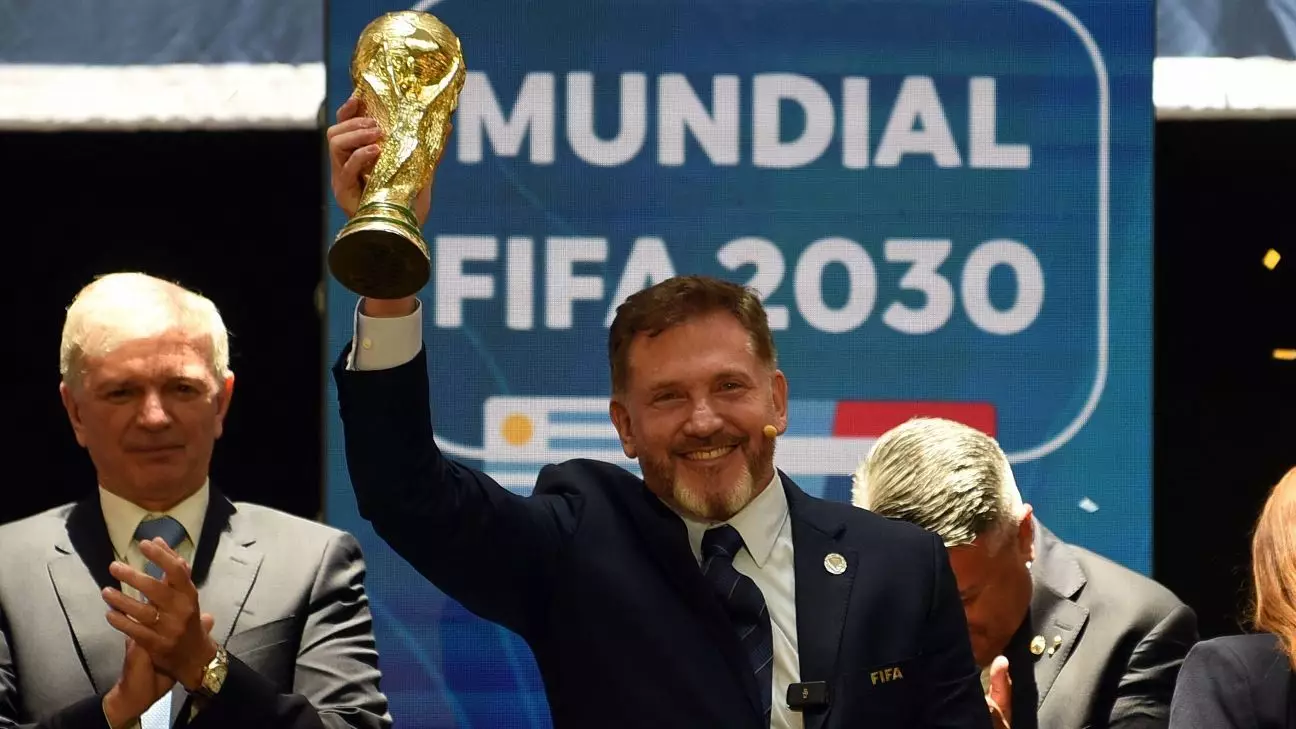Alejandro Domínguez, the president of CONMEBOL, has ignited a discussion that could redefine the footballing landscape for decades to come. His recent proposal to expand the 2030 World Cup from 32 to 64 teams is not merely about numbers; it reflects a broader ambition to celebrate a centennial milestone in a truly inclusive manner. Since its inception, the World Cup has evolved into a platform that transcends sporting boundaries, and expanding the tournament can further enhance its status as a global heritage event. By allowing even more nations to participate, the tournament could become a true festival of football, celebrating diversity and communal joy.
Historical Significance in a Modern Context
The 2030 tournament is especially symbolic, as it marks a full century since the inaugural World Cup hosted by Uruguay. The nostalgia encapsulated in this celebration provides an opportunity to remember where the sport began while simultaneously embracing its global expansion. There is something deeply poetic about inviting 64 nations—not just to compete, but to commemorate the sport’s rich heritage and bright future. Domínguez’s assertion that “100 years are celebrated only once” resonates with fans and players alike, emphasizing the importance of making this moment unforgettable for every participant and supporter.
The Implications of Expansion for CONMEBOL
One of the most compelling aspects of the proposed expansion is that it would likely grant all ten CONMEBOL member nations a spot in the tournament. For a region passionate about football, this prospect is tantalizing. Venezuela, the only CONMEBOL nation yet to qualify for a World Cup, would finally have the chance to showcase its talent on a global stage. This move could ignite football fervor across South America, providing a sense of unity and encouraging investment in grassroots programs—an indispensable element for nurturing future talent.
Debate on Quality vs. Quantity
Yet, this bold proposal is not without its critics. UEFA President Aleksander Čeferin has labeled the push for a 64-team World Cup as “a bad idea,” suggesting that it dilutes the tournament’s prestige. Stakeholders express concerns about a potential decline in the quality of play and how it might diminish the fiercely competitive qualifying processes that keep national teams on their toes. Such discussions highlight an ever-present tension within sports: the balance between inclusivity and maintaining the joy of exceptional competition.
Future Prospects for the Beautiful Game
The future of football hinges on its ability to adapt and resonate with global audiences. If FIFA follows through on Domínguez’s proposal, the 2030 World Cup could serve not just as a sporting spectacle but as a monumental occasion for camaraderie. It could inspire not only fans but also players from nations that have long been sidelined in elite competitions. As the sport grows, so too does the narrative; every team that graces the field will have a stake in the history being written.
This transformation speaks to a simple yet powerful truth: football has the potential to bring people together, creating bonds that reach far beyond the pitch. The push for a 64-team World Cup may raise eyebrows today, but in a decade, it could very well be seen as a pivotal moment in football history.

Leave a Reply